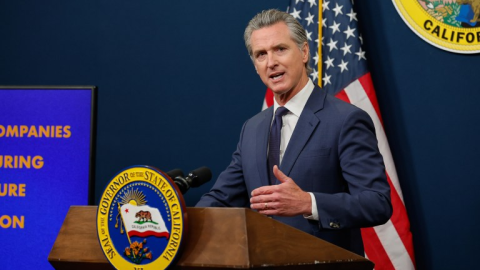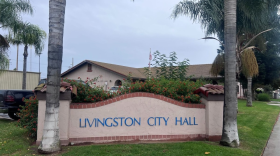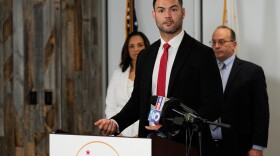-
As Gov. Gavin Newsom prepares to release his spending plan this Friday, a projected $18 billion deficit awaits. Will he raise taxes or cut spending? Either could spell trouble for Newsom’s legacy.
-
Many Venezuelans who now live abroad celebrated Maduro’s ouster because they view him as a dictator who has clamped down on opposition. In Fresno, activists held an emergency protest to call out the U.S. military actions.
-
The councilmember says he was a teen at the time, adding that he now regrets his actions and wants to take accountability.
-
Public comments by the wife of the city’s assistant chief of police shed some light on the situation, in which the chief and assistant chief are both out on “authorized leave” from the force and an interim police chief has been named to lead the department. The whole situation also shines a light on multiple lawsuits facing the department.
-
The race for California governor features former presidential wannabes, a county sheriff, two women who could become the first female to hold the office, current and former House members and at least one billionaire. And it hasn’t officially started yet.
-
A former top aide to Gov. Gavin Newsom has been indicted on federal charges alleging her involvement in a scheme to steal campaign money from former federal Health Secretary Xavier Becerra.
-
Voters in Stanislaus and Merced counties showed less enthusiasm for Proposition 50 than elsewhere in California – to no one’s surprise.
-
The community advocates argue the plan to annex 9,000 acres near Southeast Fresno would drain the city’s resources too thin without providing a benefit to communities already within the city.
-
Days after voters in California approved a redrawing of congressional districts by a wide margin, two House races are already seeing the initial impacts.
-
Speaker Emerita Nancy Pelosi announced she will not seek reelection to the U.S. House. This photo gallery was curated by Associated Press photo editors.
-
David Tangipa and the California Republican Party allege the new congressional map approved by voters violates the US Constitution.
-
California voters on Tuesday approved a plan to overhaul the state’s congressional district boundaries, giving Democrats a boost in their bid to win the U.S. House majority next year.















